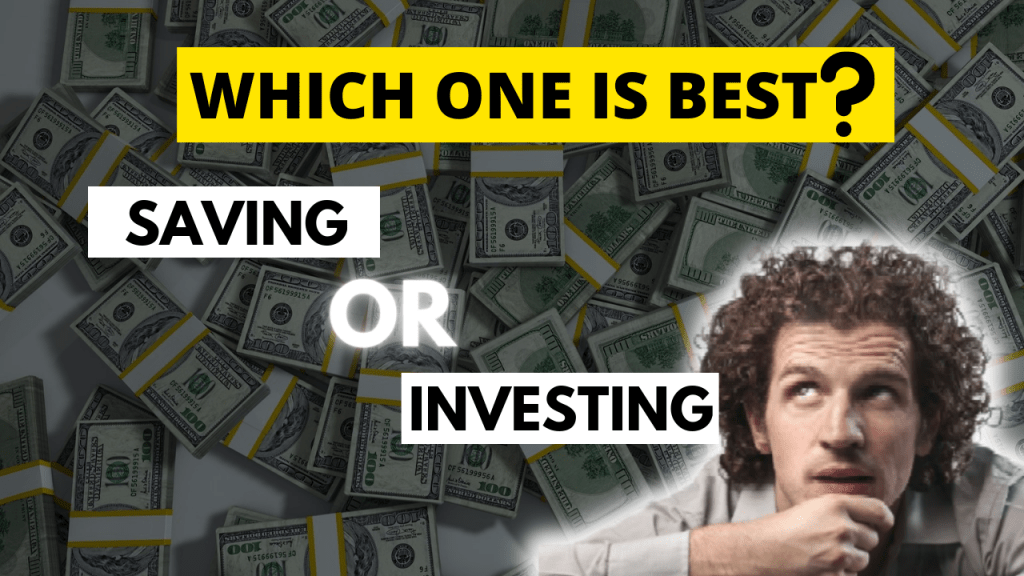
What Saving and Investing
The words “saving” and “investing” are mostly defined as same basically, but both are different and they are very important for our financial future. A common feature of savings and investments is the greater importance they have in our lives. If you don’t know about those things and not into them, now is the time to start. In both case changes may be needed in spending, tracking and using your income, but it can and should be built into your plan. As a general rule, savings should be short term while investments should be long term. So considering these aspects now let’s learn about the differences. In addition, when saving and investing, it must be taken into account that when risk decreases, liquidity increases and vice versa.
Saving money generally means it’s available when we need it and there’s a low risk of it losing value. The investment generally has a long-term impact, such as our childhood education fund or retirement. The main and considerable impact between saving and investing is their risk factors. The best way to make a perfect decision is to make it simple. Let’s skip the details and focus on what you want from your money. So in this article, the choice between saving or investing should become understandable (spoiler alert: the correct answer is usually a combination of both).
Saving
1.What is savings?
Saving means setting aside some of your money for the future. You can supplement your savings with one-off or periodic payments. And if you use an easily accessible account, you can get back your investment plus the interest earned whenever you want. In addition to accessibility, the greatest advantage of the saving the money is its safety. Under Sri Lankan law, if you have an account with a bank registered under CBSL law, you can get 100% of the savings back if that bank goes bankrupt.
2. Is saving without risk?
Not quite. Since interest rates have been low for years, the return on your money will be very low. The risk is that it will not beat inflation. So while the money in your savings account isn’t going anywhere, your purchasing power and value diminishes over time. In other words, it will buy less from you. We have to save for purchases and emergencies. Saving money generally means it’s available when we need it and there’s a low risk of it losing value. It’s important to keep track of your savings, set a deadline or time frame, and set a value for your goals. You save when you put money in a savings account, such as a bank deposits, money market account or a certificate of deposit. It carries little risk of losing money, but it also offers minimal gains. When you save, you can usually withdraw that money when you need it or after a certain period of time.
Saving facts
- Short-term – Usually for smaller short-term goals in the near future, such as saving for a major purchase or an emergency.
- Easy access to cash -A savings account gives you access to cash when you need it.
- It carries minimal risk- CBSL monitors your money if your bank is registered under the CBSL Act.
- Earn interest – When we save the money in specific institution we can get a specific interest for our capital overtime.
Investing
3. What is investing?
Like saving, investing is also saving money for the future. There are many ways to invest, and they usually involve fees or charges. Perhaps the best known are stocks and shares, mutual funds, fixed deposits, unit and growth funds, term deposits, real estate,commodity etc. For example, if we take stocks in which you buy a small part of a sole proprietorship and funds in which you buy a basket of ready-made investments that are managed by you by an expert or a stockbroker. By investing, you are investing your money in something that you believe will increase in value over time. Here you are exposed to a different kind of risk exposure in the markets meaning that the value of your investment can and will rise so that you may get back less than what you invested. Your expected returns may also fluctuate and are not guaranteed. That’s why you should strive to an investment of 5 years or longer. When we invest in long period of time we can prepare ourselves from fluctuations of money. Scheduling when you want to access your money can help you manage the risk you take.
4. Why take risks?
Well, for starters, not all investment risks are created equal. And the advantage of taking calculated risk is that it gives you the opportunity to make more money than you would with a savings account. When investing, we have to invest money correctly and continuously. For example, you get a better return if you invest early. Understanding the different investments, what they are for and how to use them is essential for success. We invest for long-term goals such as financing our children’s education or retirement, buying high-value real estate, starting a business etc. When you invest, you have the potential for better gains or rewards in the long run, but also the potential for losses. You risk investing more for a higher return, but your potential loss can also be large. It is important to review your goals to determine which option is best for everyone, save or invest. The answer for Investing or saving, depends on your goals, your risk tolerance, and your financial situation.
5. Should we invest now or wait?
You may consider starting your investment strategy after:
- Increase your emergency savings – Savings must come first. Before investing, try to ensure that you have a separate, low-risk, low-return account that you can use to cover expenses during an unforeseen event, usually at least three to six months of living expenses.
- Amortization of debt with high interest rates – By paying your debts and loans you can focus on the limitation of risk factors you will face in using your money. So it’s important to cut out the debts and loans.
Investment Facts
- Often used for long term goals – Investing can help you achieve long-term goals. Longer wait to access the invested funds. When you invest your money, it can take a few days longer to access your money compared to a savings account.
- The factor of risk – In investing it not sure to make a good gain over the time. The worst case of losing all may be possible.
- Income potential – Investments generally have a higher potential return than a savings account.
6. What is the main difference between saving and investing?
Saving – gradually save money, usually in a bank account. We commonly save money for purposes, such as paying for a vehicles, payment on a house or any emergency needs. Saving can also mean investing your money in things like a bank account.
Investing – Using some of your money to help grow by buying assets that can appreciate in value, such as stocks, real estate, or mutual funds.
7. Which one is right for you?
It’s actually more a question of which combination is right for you. Of course, life is full of many different needs and aspirations. So it is very likely that you have more than one objective in which you would like to invest your money. A good place to start is figuring out how much you can save each month. If you have a number in mind, you can think about how to divide it up to make sure you have money for different periods of your life. The choice of selecting the whether depends on:
- your age and priorities
Unexpected things that can happen who knows when before you start saving for something else, create an emergency fund first.
- Things you want to do in next 5 years
For the money you need in the short term, for example for a down payment on a house, saving makes sense because if you invest for less than 5 years, your investment may not have enough time to make up for any drop in value.
- Things you want to do in next 10 years
For money that you won’t need for years to come, such as a place to retire, taking a certain investment risk can give you better returns, because with savings, the value of your money is eroded by inflation over time.
( If you wish to Watch a cool video explaining this topic – CLICK HERE )
8. Are there any important rules?
- Yes, save for what is to come and invest for the future.
- Save the money you can’t afford to lose, invest the money you accept when you lose.
- Save to protect money over time and invest to grow money over time
- Make it a habit to save for a peaceful life and invest for an affordable luxury life.
